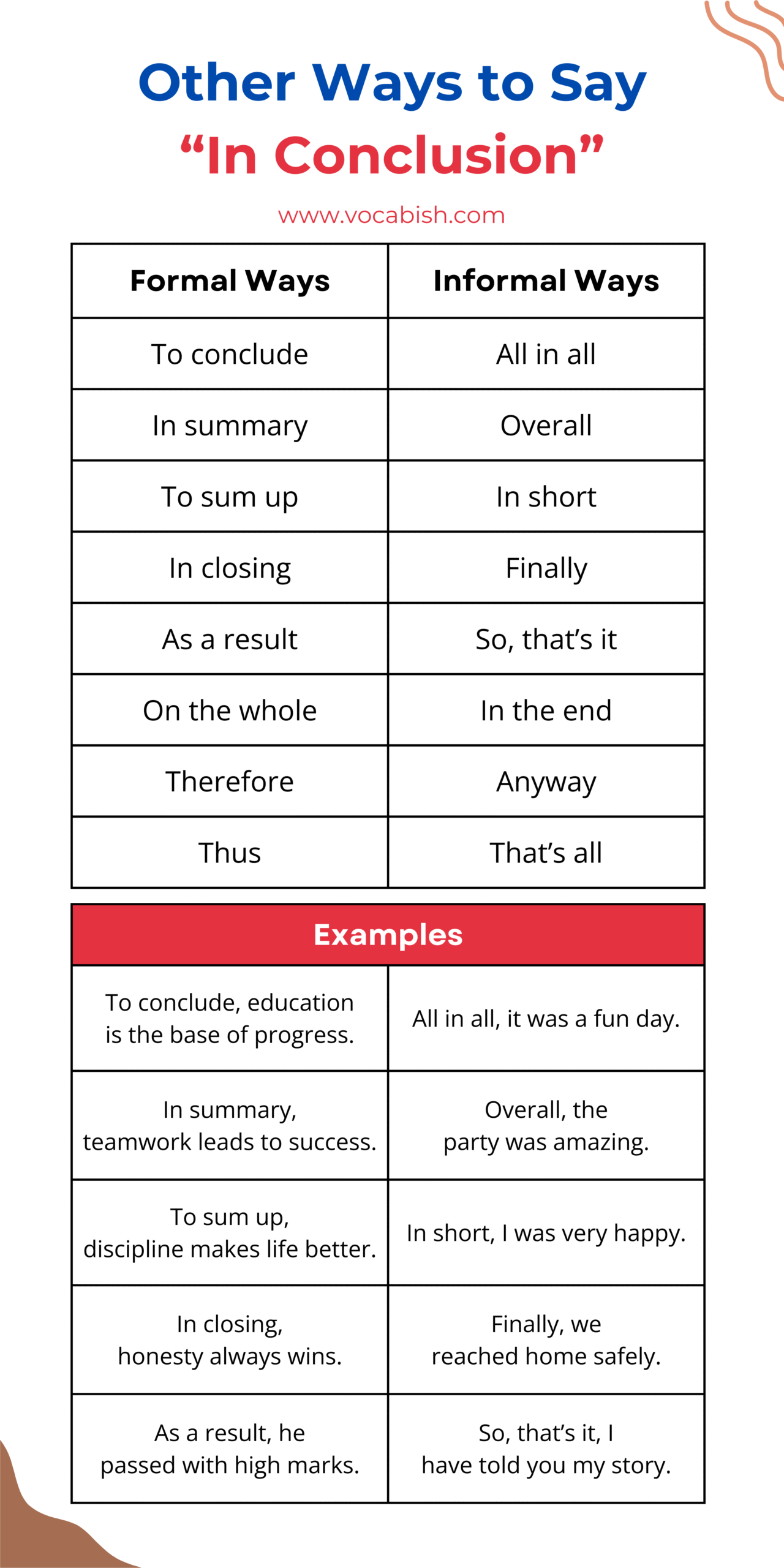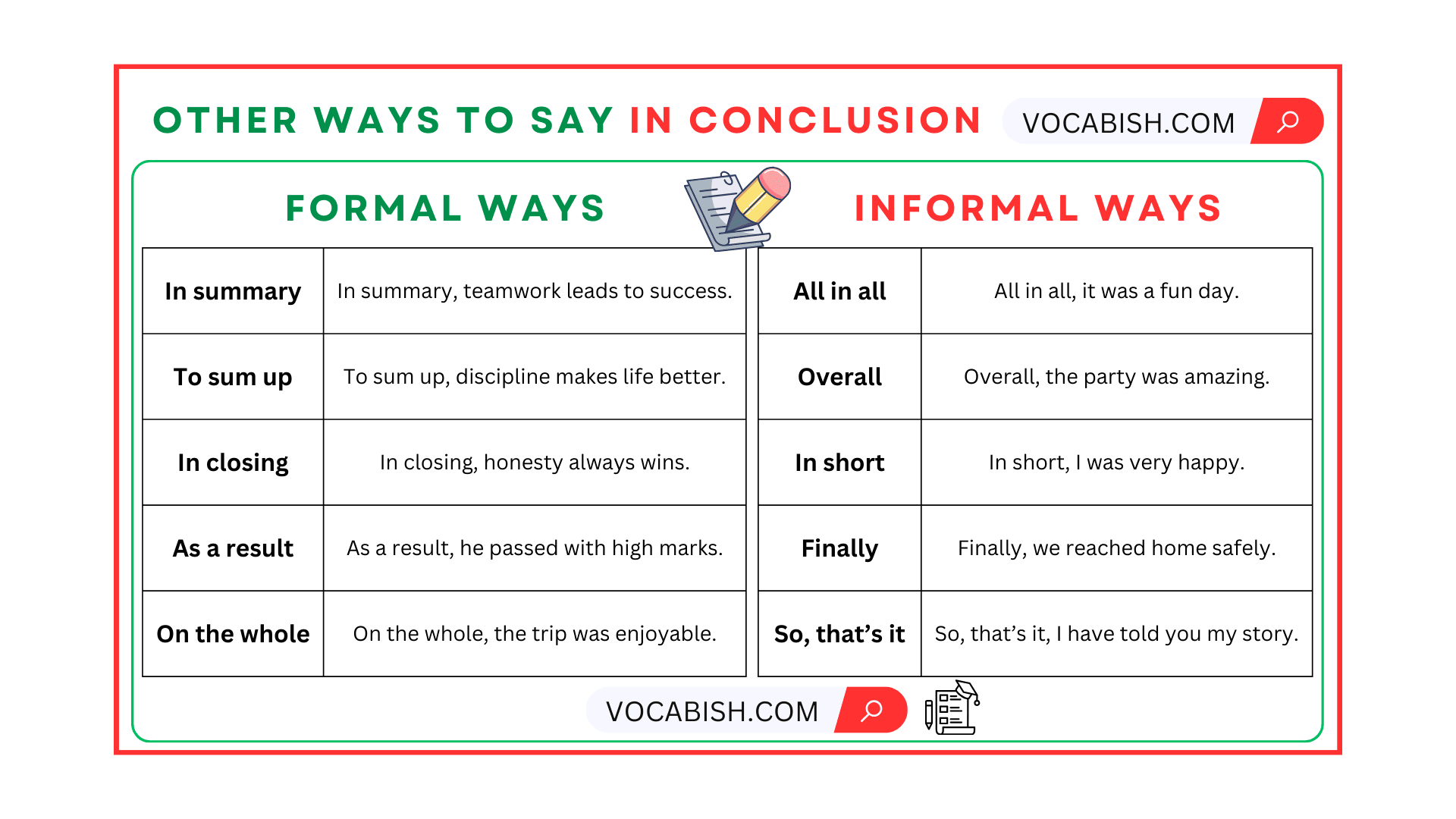The phrase “In Conclusion” is often used in English to end a speech, essay, or discussion, but there are many ways to say it. Learning different expressions with examples helps you speak, write, and understand English more naturally. In this blog post, you will discover alternatives to “In Conclusion” that make your writing and presentations more professional and engaging. Mastering these phrases improves your communication skills and helps you summarize ideas clearly and effectively.
What Does In Conclusion Mean?
The phrase in conclusion is used when you want to:
- End a speech, essay, or presentation.
- Summarize the main points.
- Give a final thought or decision.
Example: In conclusion, hard work is the key to success.

Other Ways to Say In Conclusion
Here are some simple and useful alternatives:
- To sum up
- In summary
- To conclude
- Overall
- Finally
- All in all
- As a result
- In closing
- On the whole
- In short
Formal Ways to Say In Conclusion
These are good for essays, reports, presentations, or academic writing:
| Formal Phrase | Example Sentence |
|---|---|
| To conclude | To conclude, education is the base of progress. |
| In summary | In summary, teamwork leads to success. |
| To sum up | To sum up, discipline makes life better. |
| In closing | In closing, honesty always wins. |
| As a result | As a result, he passed with high marks. |
| On the whole | On the whole, the trip was enjoyable. |
Informal Ways to Say In Conclusion
These are better for daily conversation, friendly talks, or casual writing:
| Informal Phrase | Example Sentence |
|---|---|
| All in all | All in all, it was a fun day. |
| Overall | Overall, the party was amazing. |
| In short | In short, I was very happy. |
| Finally | Finally, we reached home safely. |
| So, that’s it | So, that’s it, I have told you my story. |
Contexts and Usage of In Conclusion
In Essays or Reports (Formal)
→ In conclusion, global warming is a serious issue.
In Presentations (Formal)
→ To sum up, we need more investment in education.
In Conversations (Informal)
→ All in all, it was the best trip ever.
In Storytelling (Informal)
→ Finally, the hero saved the village.
Example Sentences with Alternatives
- To conclude → To conclude, exercise improves health.
- In summary → In summary, reading builds knowledge.
- All in all → All in all, we enjoyed the picnic.
- Finally → Finally, he finished his project.
- In short → In short, honesty is the best policy.
FAQs
What does in conclusion mean in English?
In conclusion is used to end a discussion or summarize main points. Example: In conclusion, kindness makes the world better.
What are formal alternatives to in conclusion?
Formal alternatives include to conclude, in summary, to sum up, in closing, as a result, on the whole.
What are informal alternatives to in conclusion?
Informal alternatives include all in all, overall, in short, finally, so that’s it.
Can I use finally instead of in conclusion?
Yes, finally can be used in both writing and speaking. Example: Finally, we reached our goal.
What is the best phrase for academic writing instead of in conclusion?
The best academic alternatives are to conclude, in summary, to sum up.
Read More

